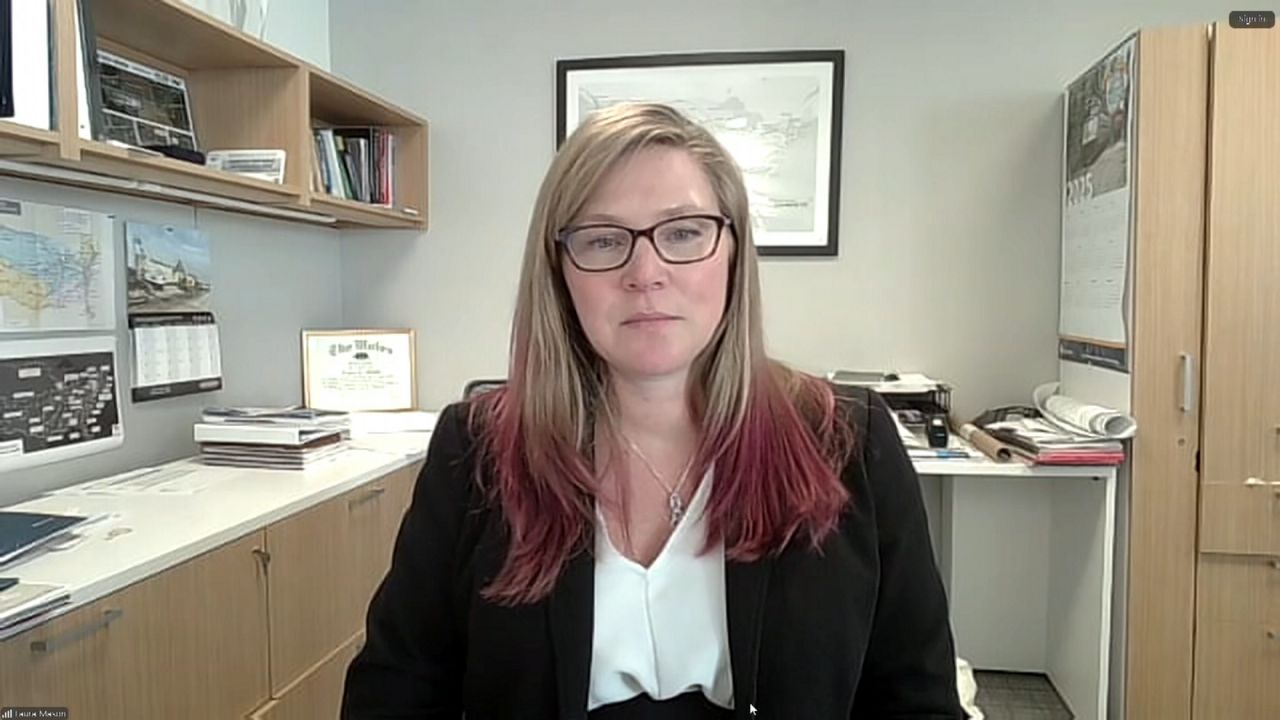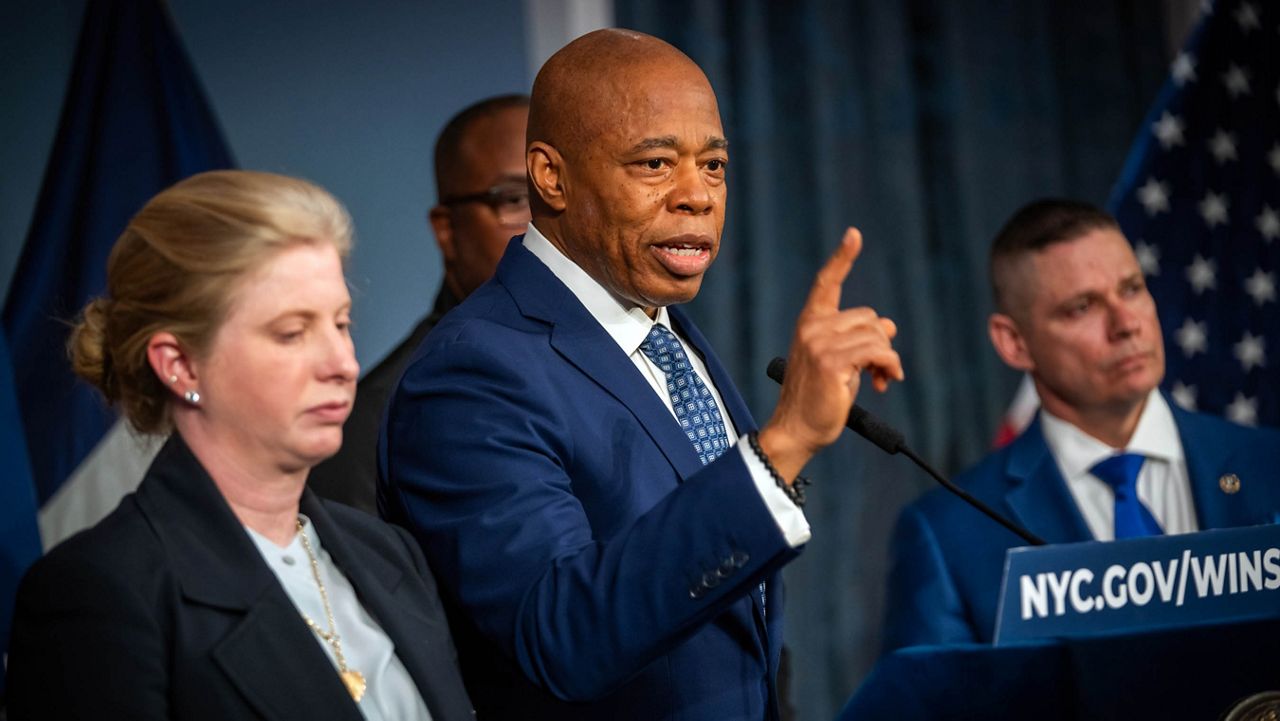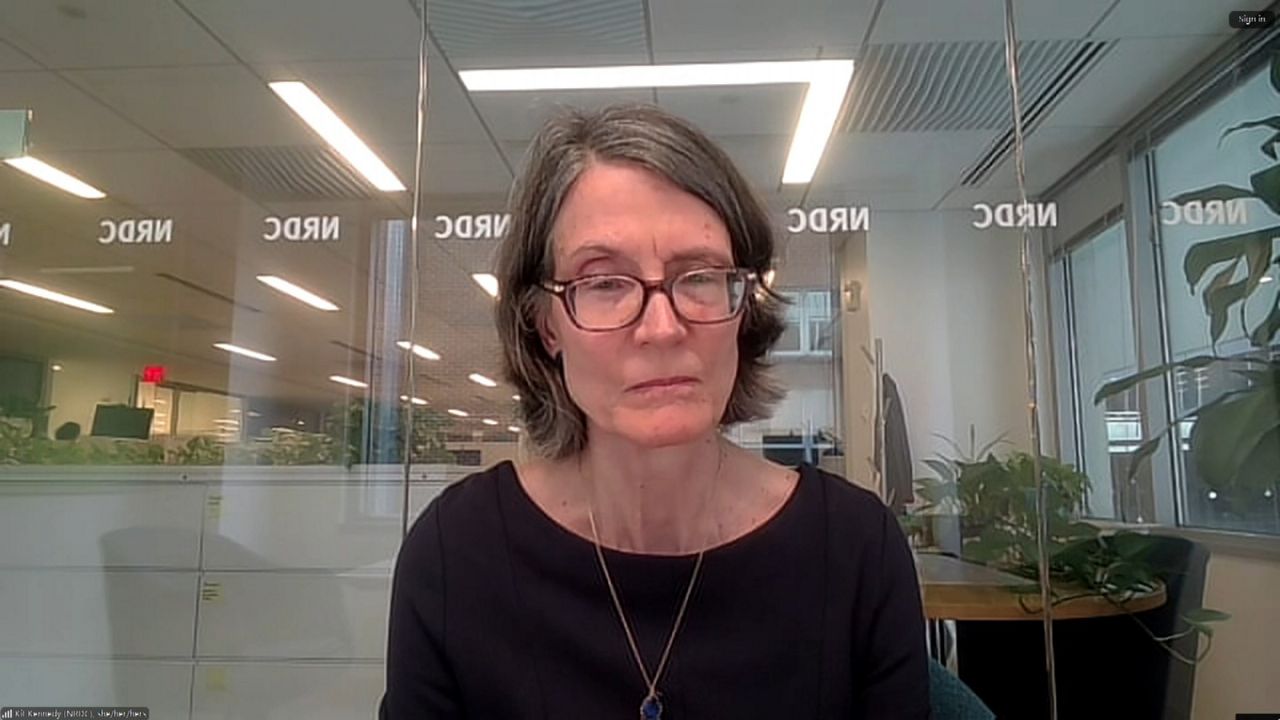The city is taking steps to move more single adult migrants out of shelters.
Migrants with 30- and 60-day notices will not be able to reapply for a shelter bed unless they demonstrate "extenuating circumstances” or show that they are taking significant steps to resettle, City Hall said Friday.
What You Need To Know
- The city is rolling out a new policy that aims to move more single adult migrants out of shelters
- Migrants with 30- and 60-day notices won't be able to reapply for a shelter bed unless they demonstrate "extenuating circumstances” or show that they are taking significant steps to resettle, City Hall said
- The policy was phased in this week, the city said, meaning some migrants have already been evicted from the shelter system based on the extenuating circumstances rule
Migrants with "extenuating circumstances" include those who have shown proof of having access to alternative housing within 30 days, those with proof that they will be leaving the city within 30 days and those with an immigration proceeding in the next 30 days, according to City Hall.
"Our goal in a universe of limited resources is to prioritize our resources to supporting the most vulnerable that includes children in the newest new arrivals," Camille Joseph Varlack, the mayor's chief of staff, said.
Those who are recovering from a serious medical procedure, those who have a serious medical procedure scheduled within 30 days, and those who are between the ages of 18 and 20 and enrolled in high school full-time also qualify, City Hall said.
In addition, single migrants who are making efforts to resettle, like looking for housing, applying for jobs and applying for work authorization and asylum, will receive extensions on a case-by-case basis, according to the city.
“Applying for jobs, submitting work authorization, TPS or asylum applications, searching for housing, all will be considered," Varlack said.
About 6,500 new 30- and 60-day notices have gone out with details about the new policy, which will impact around 15,000 migrants currently in the city's care, City Hall said.
The policy was phased in this week, the city said, meaning some migrants have already been evicted from the shelter system based on the extenuating circumstances rule.
All single adult migrants to which the policy applies will be aware of the rules when they are officially rolled out on May 27, according to City Hall.
The Adams administration rolled out its 30- and 60-day notice system for migrants — which limits the amount of time they can stay in shelters before they must apply for re-intake or leave the system — last year.
While most single adult migrants have been receiving 30-day notices from the city, some single adults — mainly those ages 18 to 23 — have been getting 60-day notices.
The new policy does not apply to migrant families with children, who are currently limited to 60-day shelter stays before they must reapply.
“These changes will require some adaptation. We are confident that they will help migrants progress to the next stage of their journeys, reduce the significant strain on our shelter system and enable us to continue to provide essential services to all New Yorkers," Varlack said.
Advocates say the evaluation process for awarding extra time is going to be based on a point system.
“In assessing that, the city is going to essentially award points for efforts that people make and they want to limit the number of points you can get in any particular area," Josh Goldfein, a staff attorney for the Legal Aid Society, one of the plaintiffs in the right to shelter case.
He said a migrant would have to get around 20 points for an extension.
According to Goldfein, the city plans to award anywhere between 1 to 5 points per area of consideration.
“For instance, you can only get so many points for looking for housing, you can only get so many points for looking for work, because in their view people should be doing all these things," he said.
The Legal Aid Society along with the Coalition for the Homeless, the other plaintiff in the case, will be monitoring the city’s efforts closely.
“If they are going to use those tools just to reduce their costs without taking into account what people actually need, then we will be back before the judge," Goldfein said.
Nearly 200,000 migrants have arrived in the city since the spring of 2022, and more than 65,000 are currently in its care.









